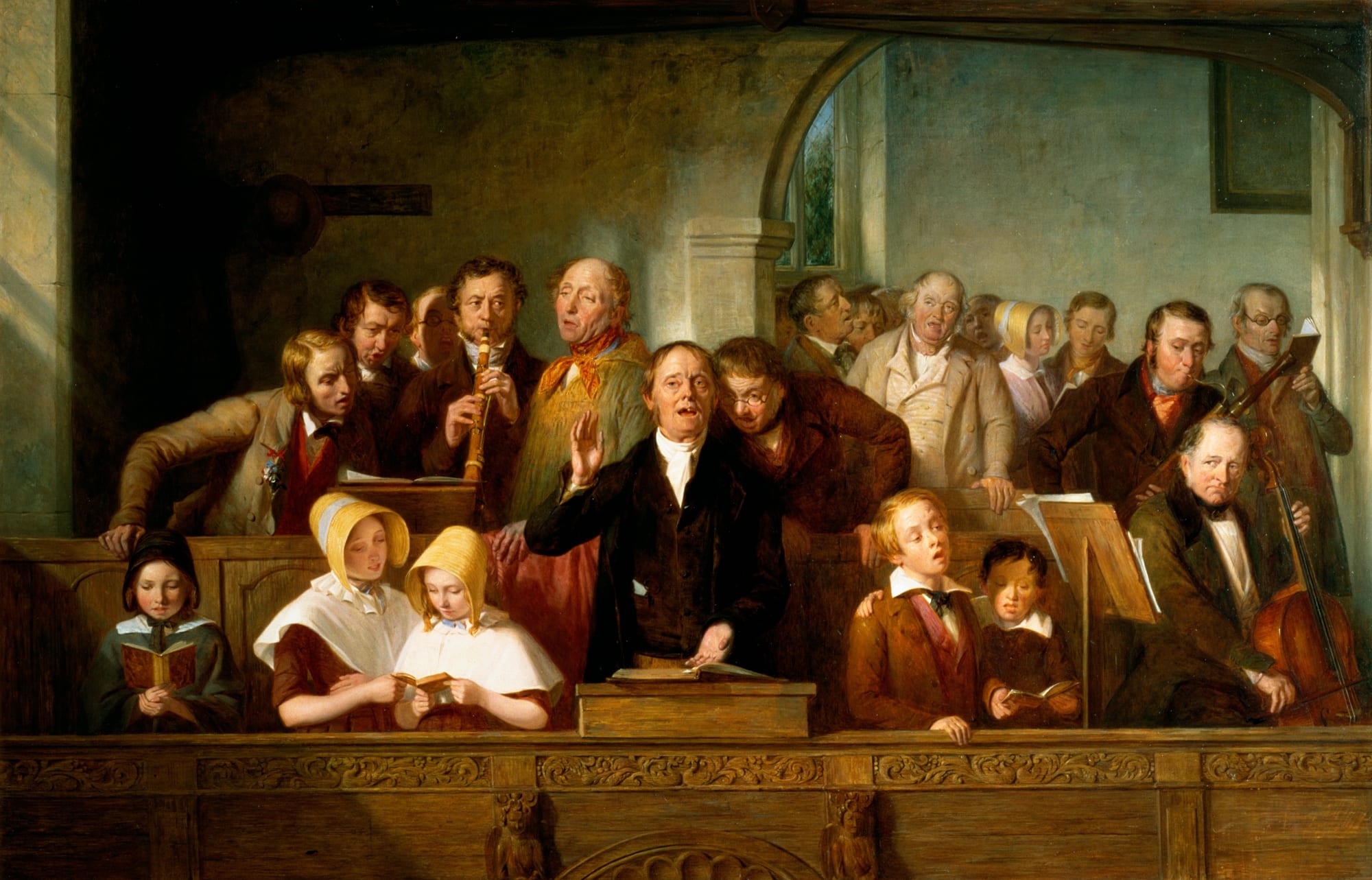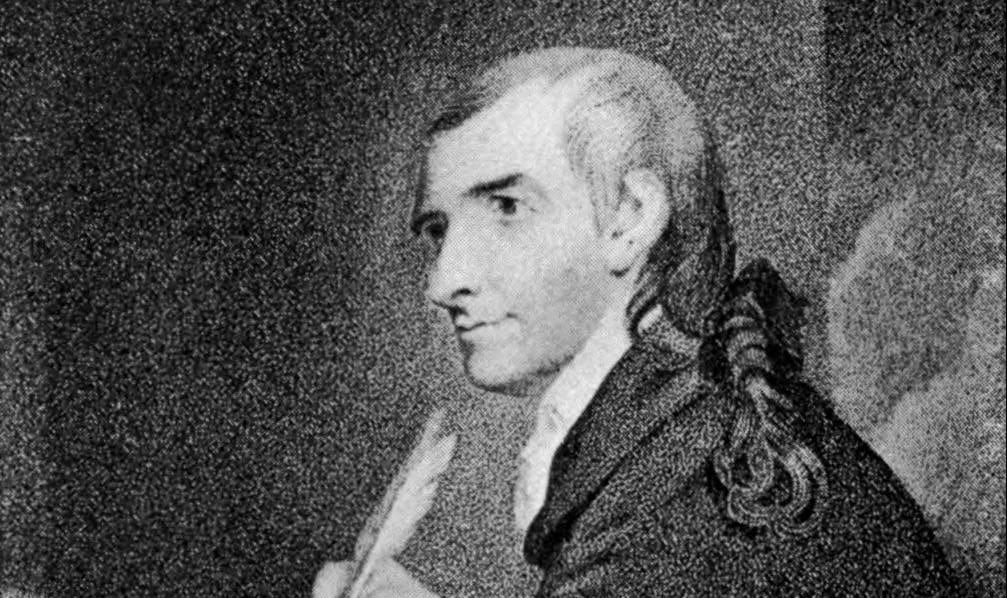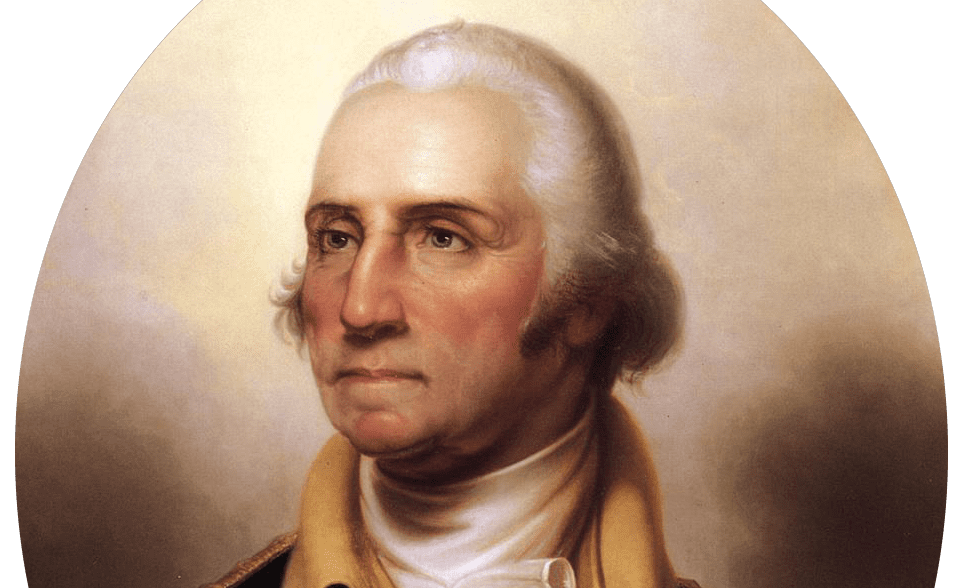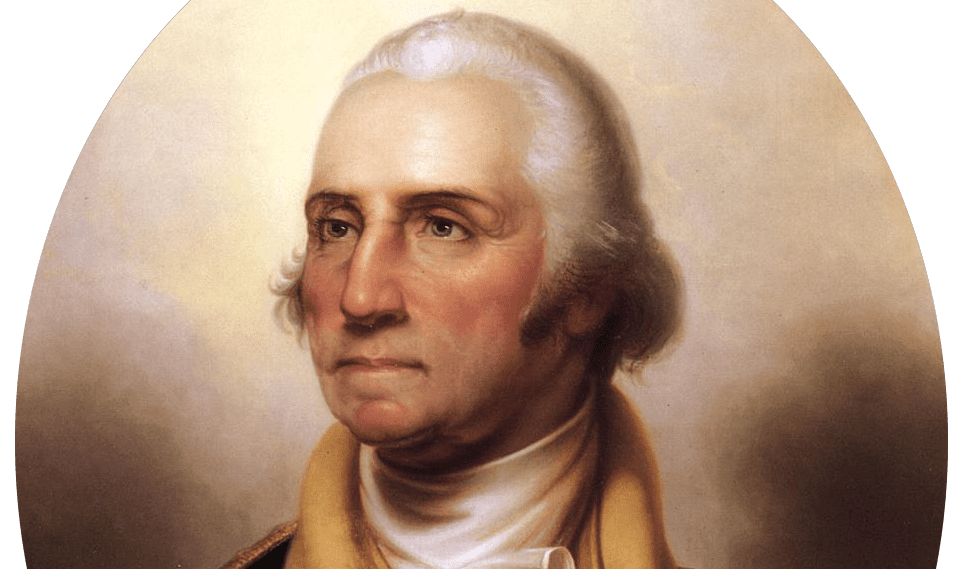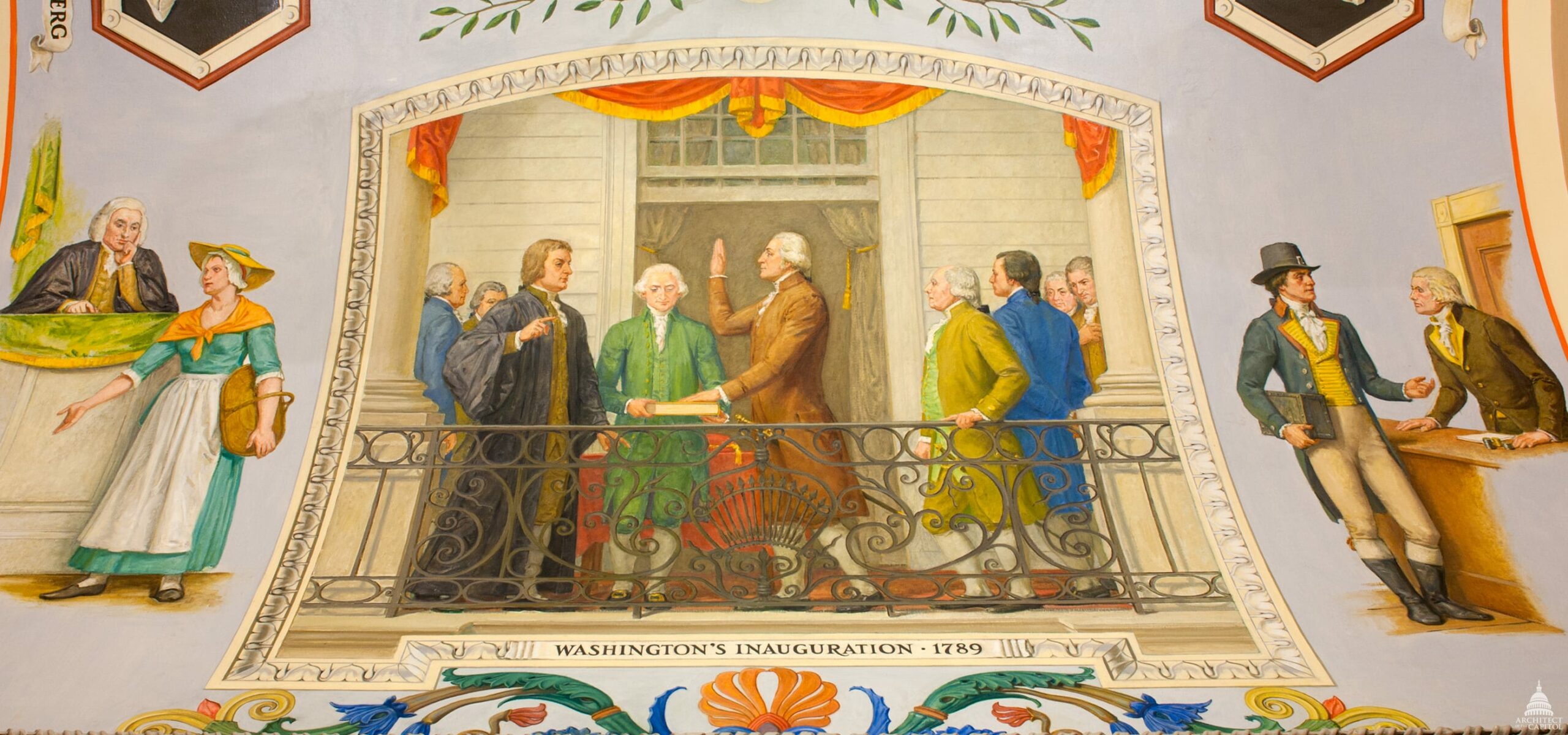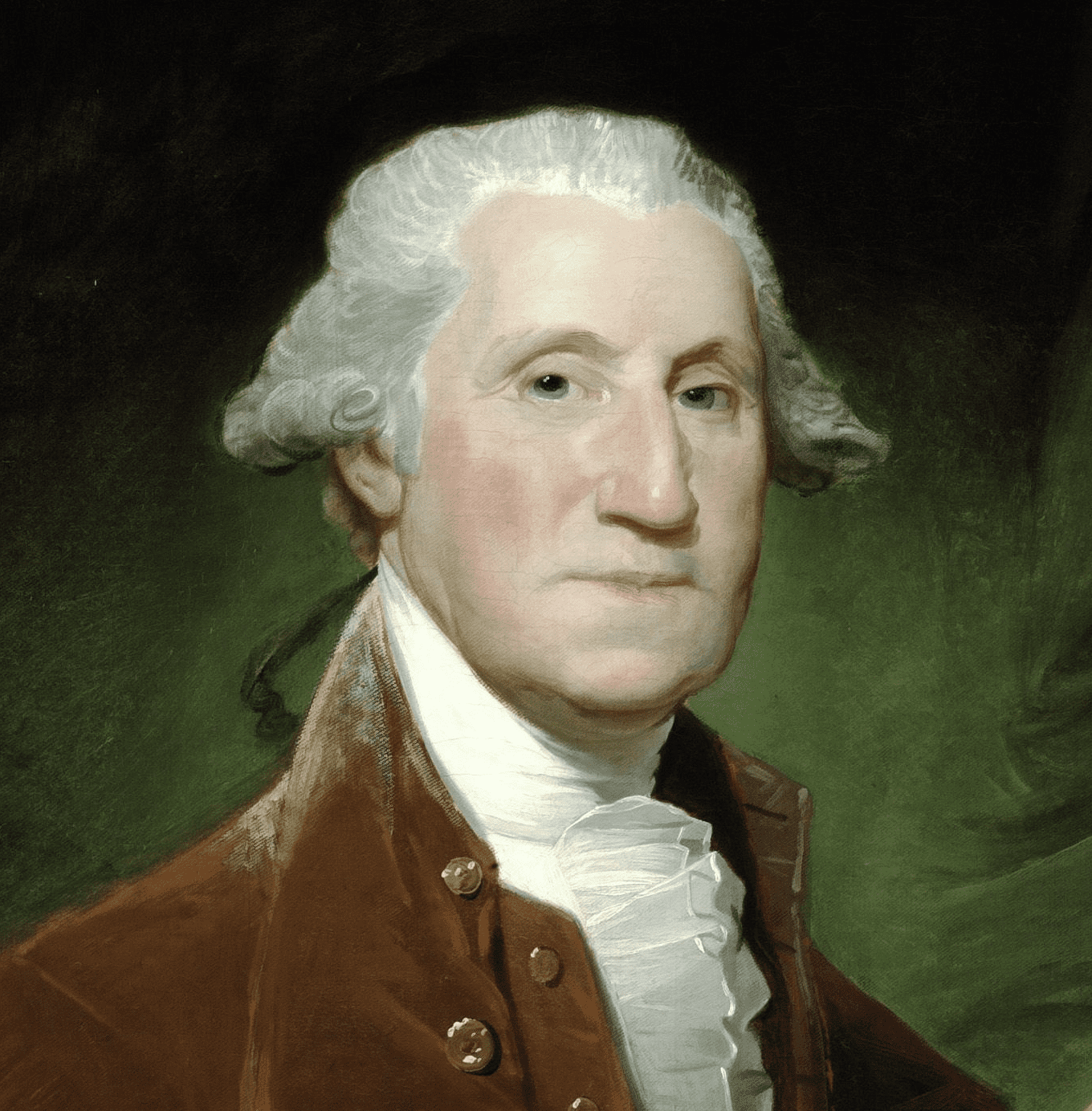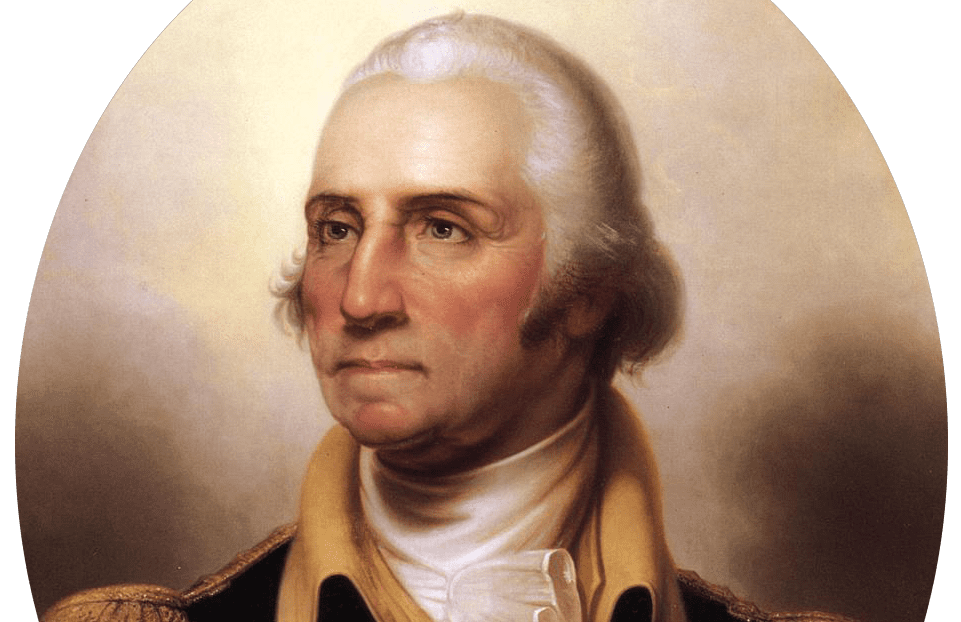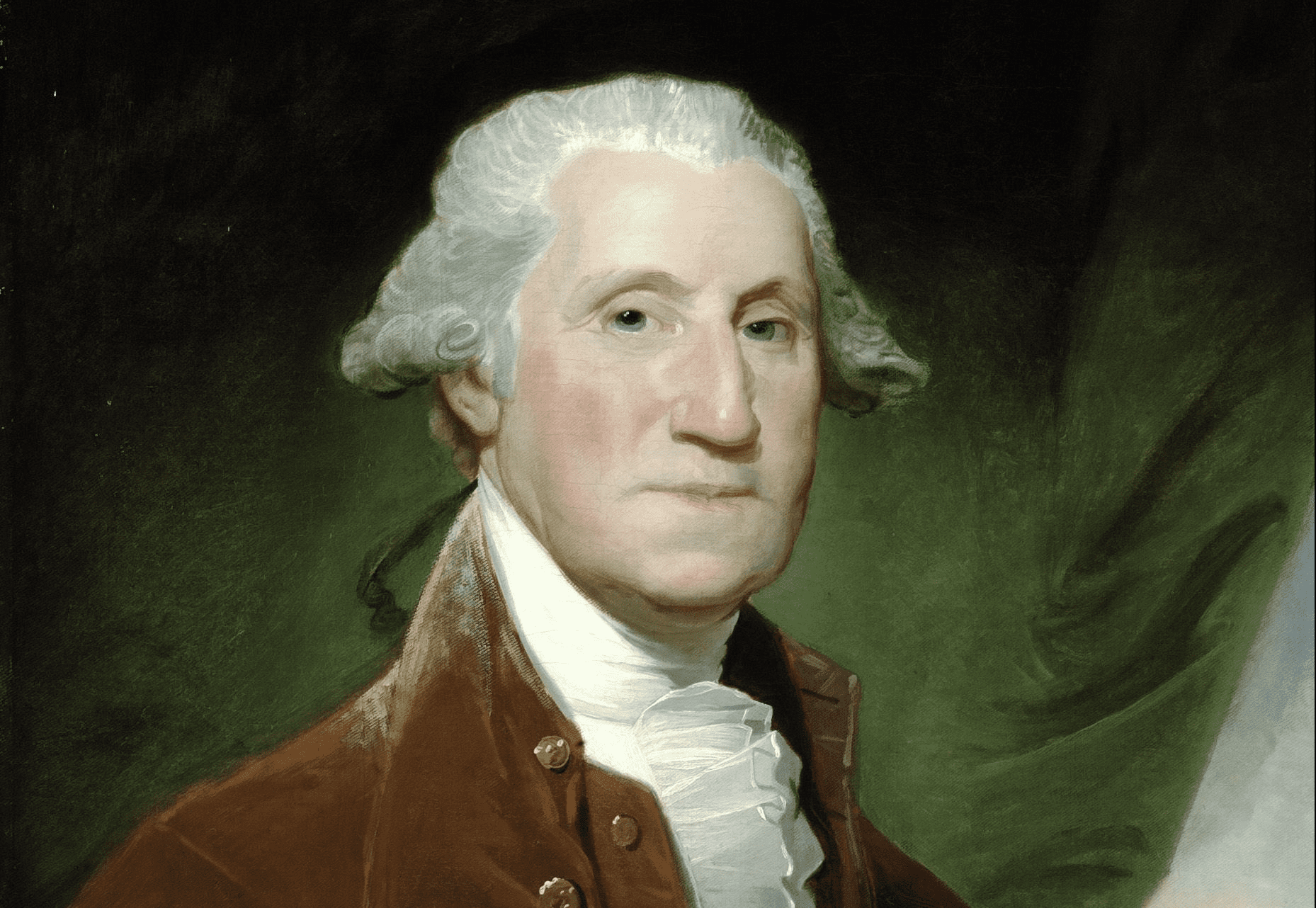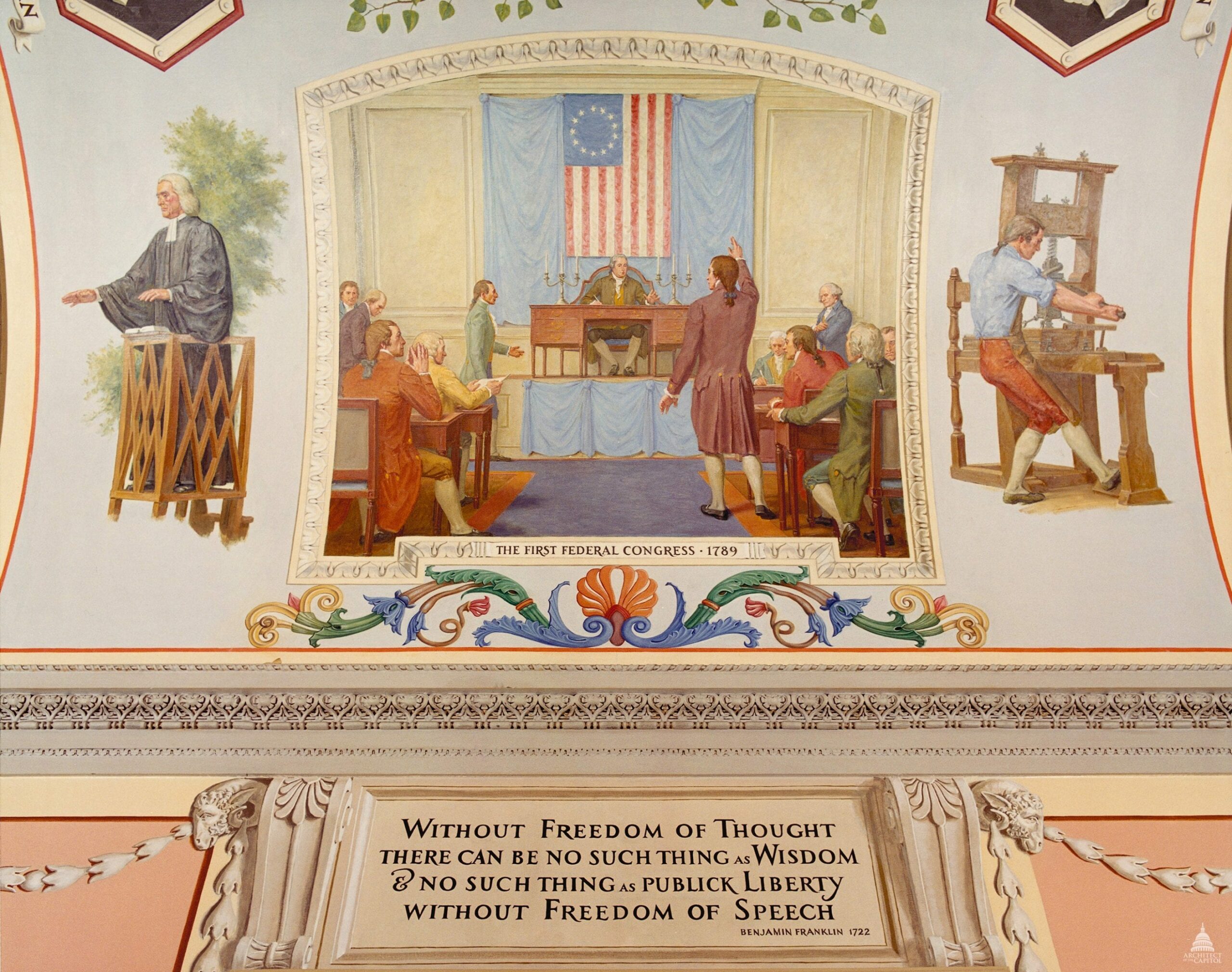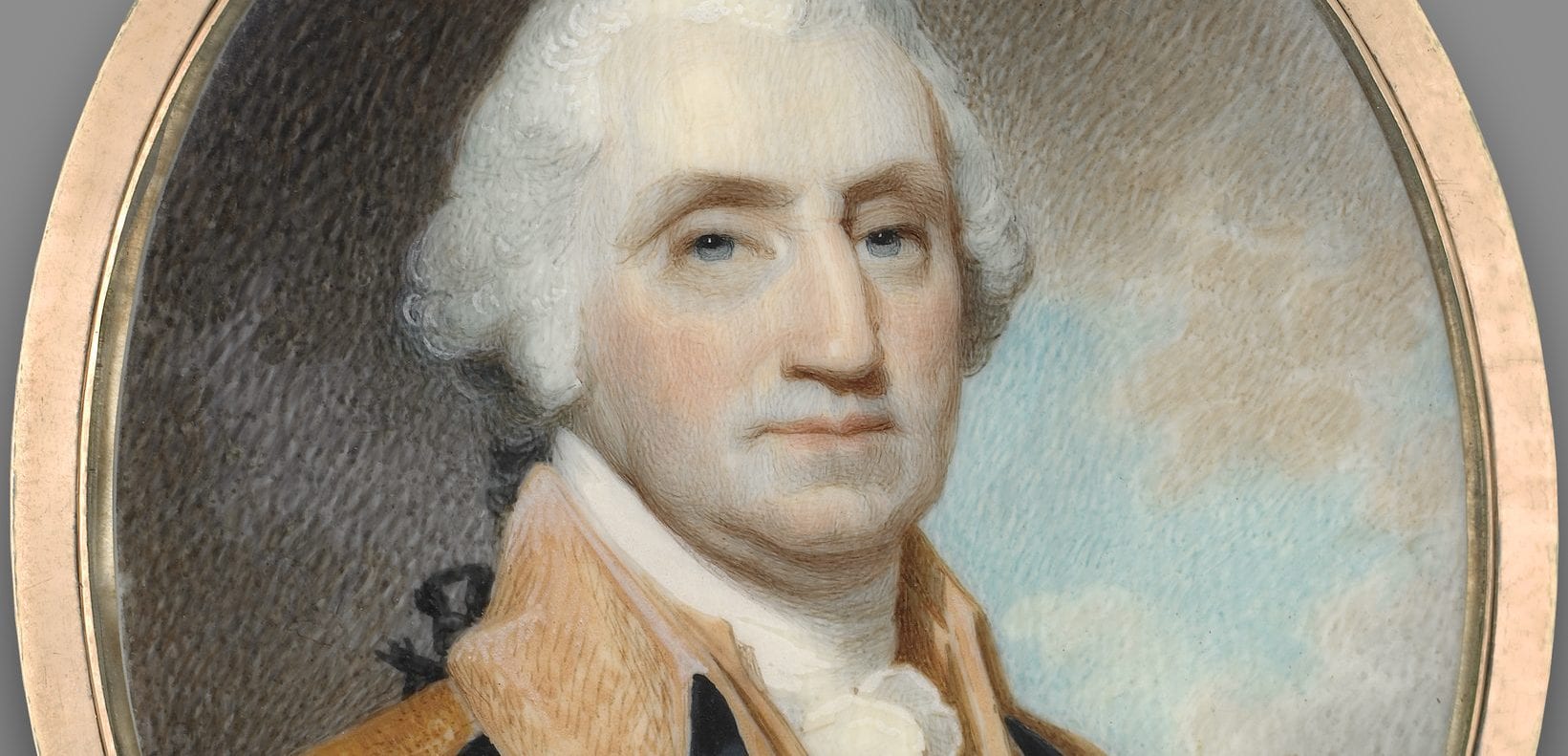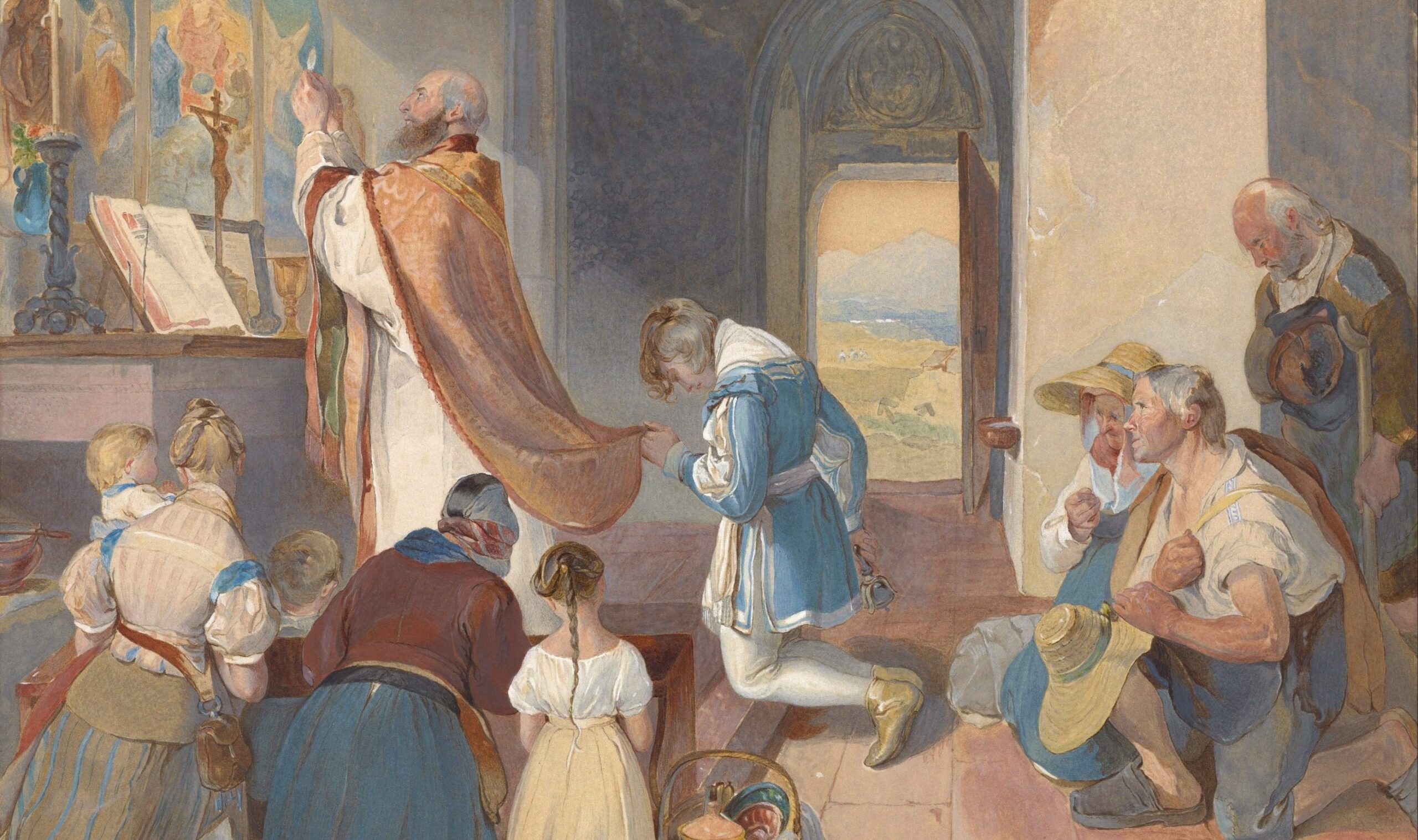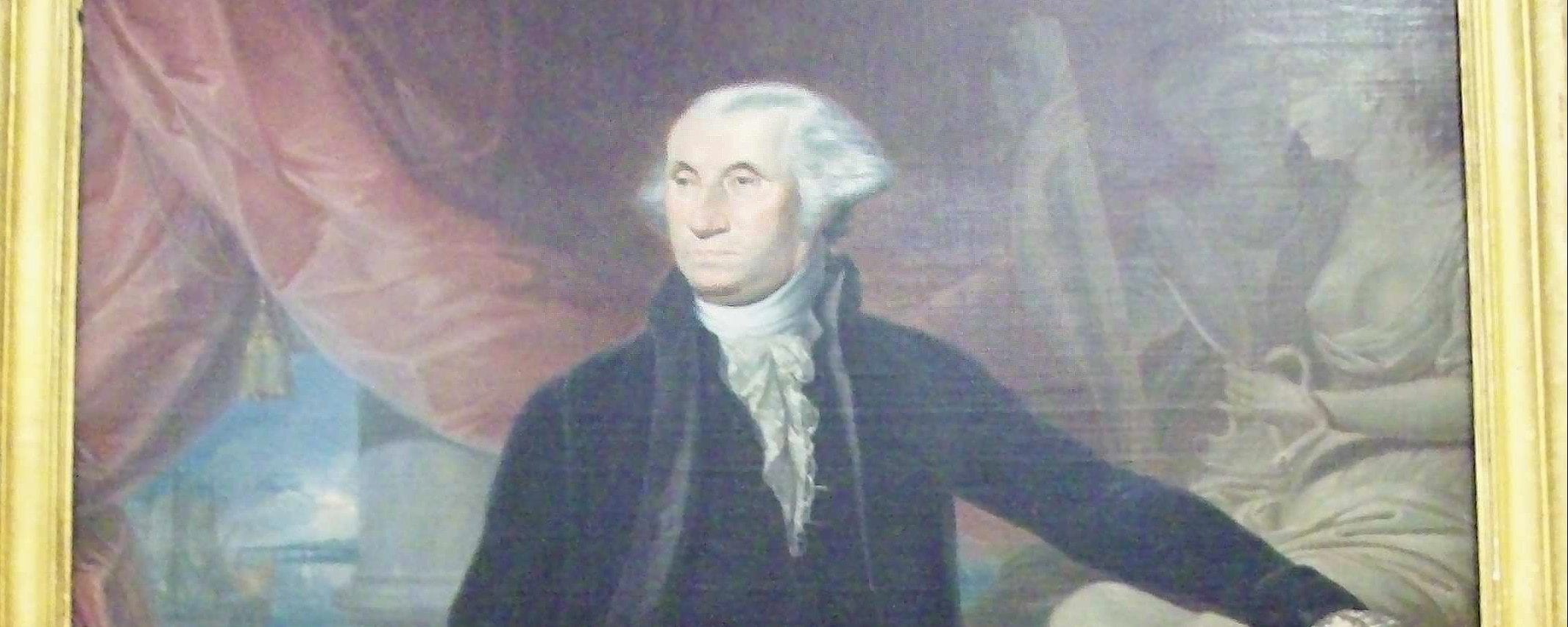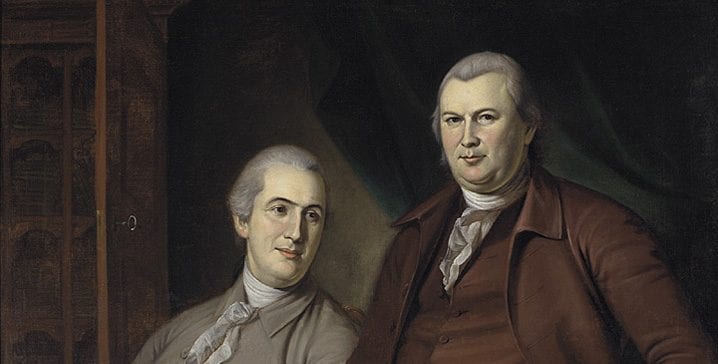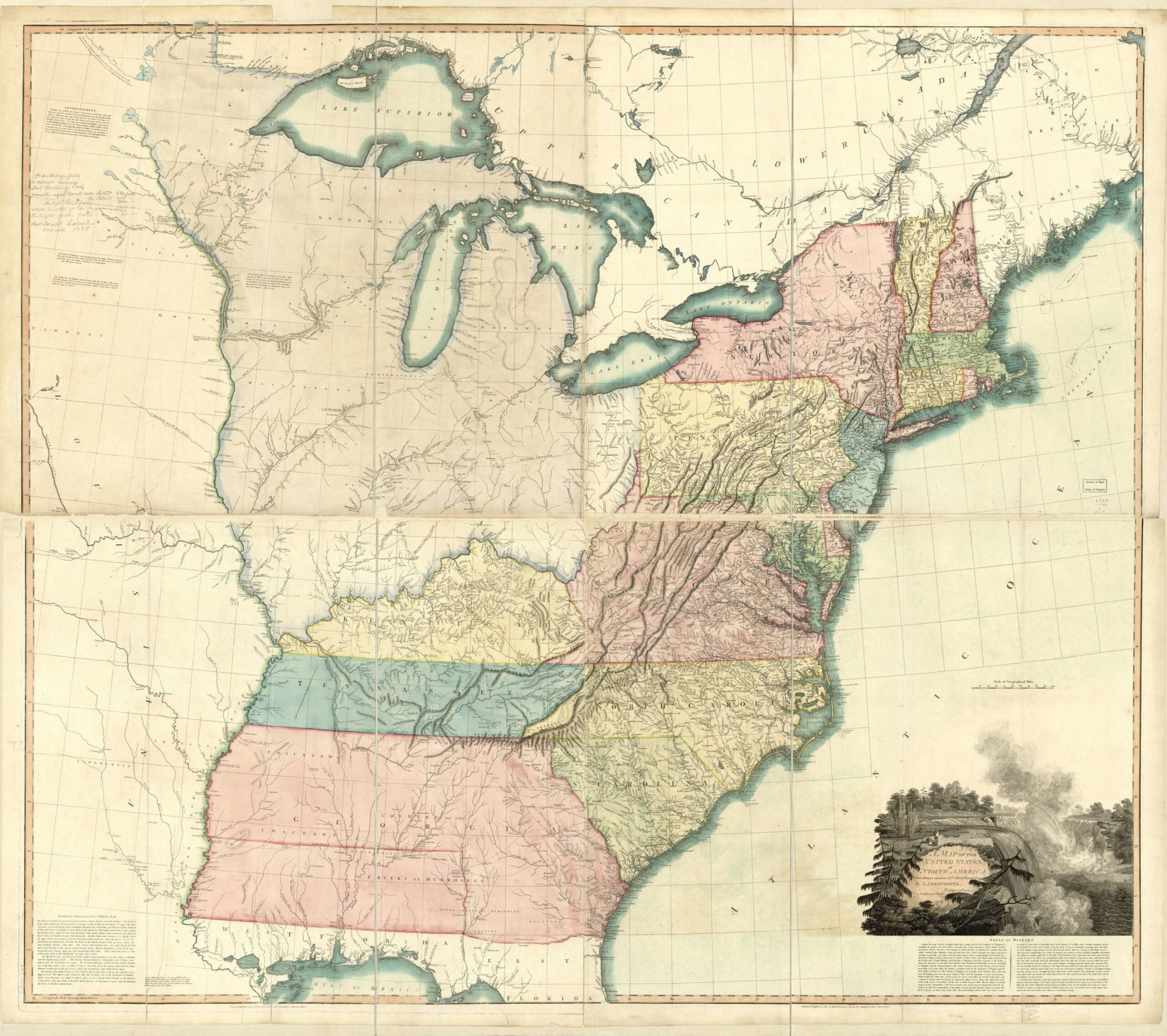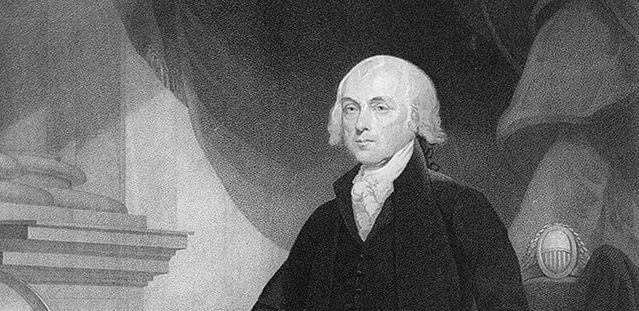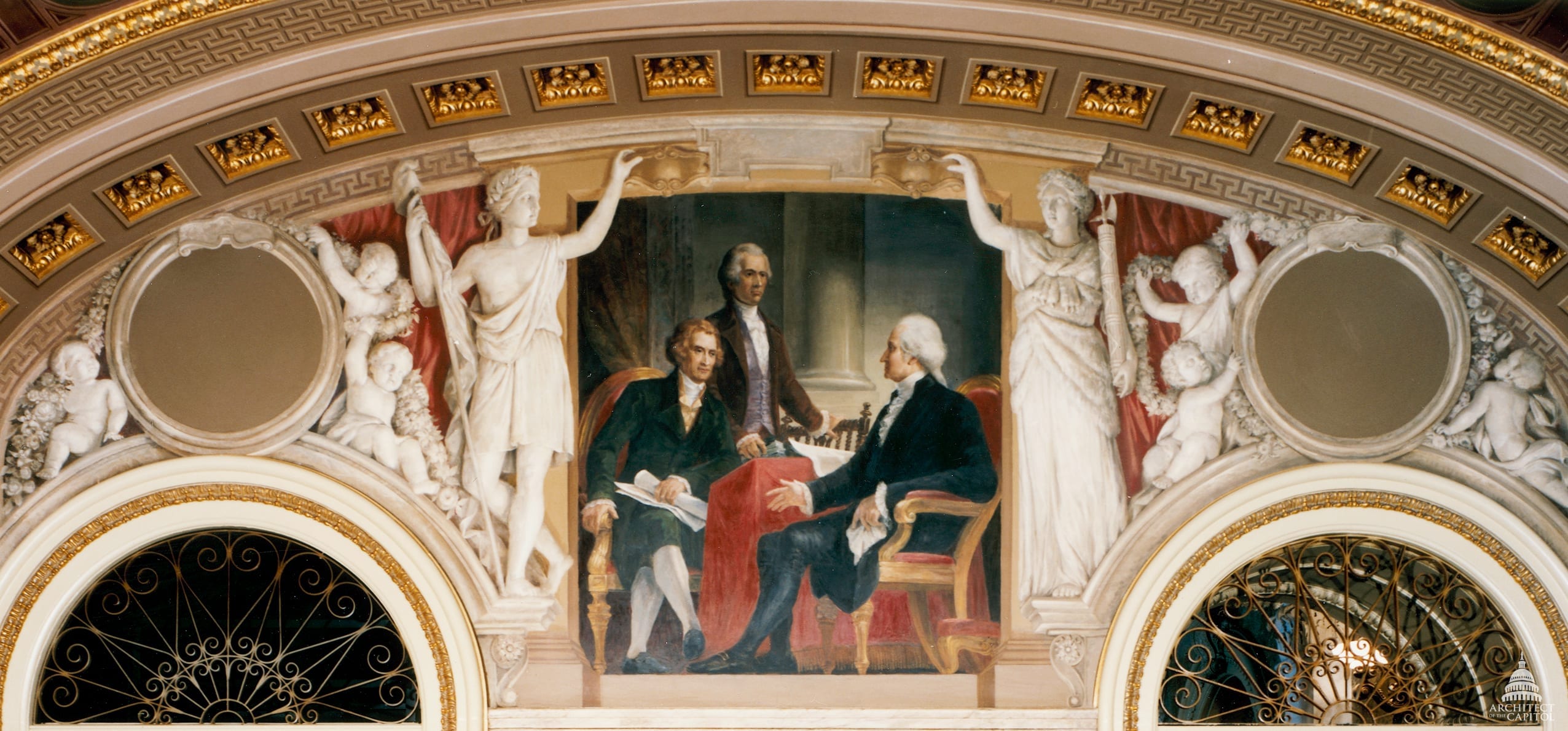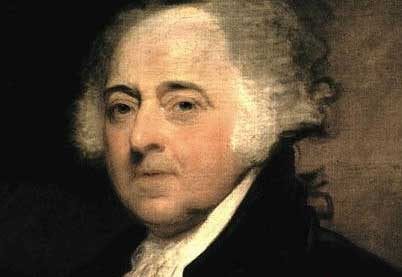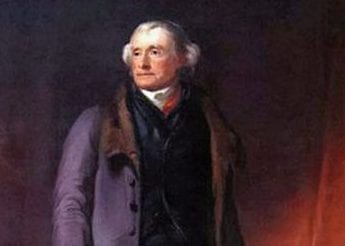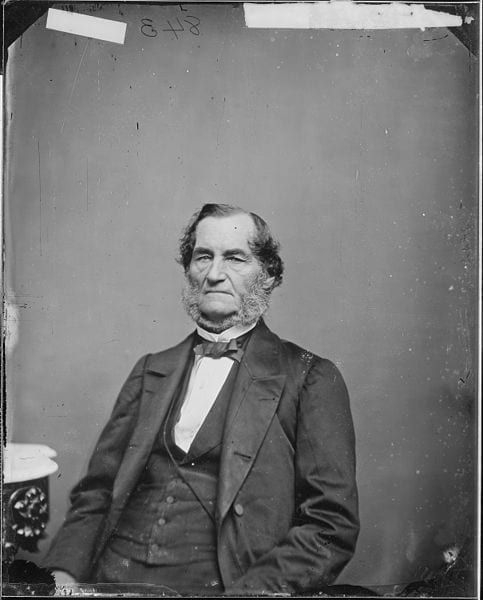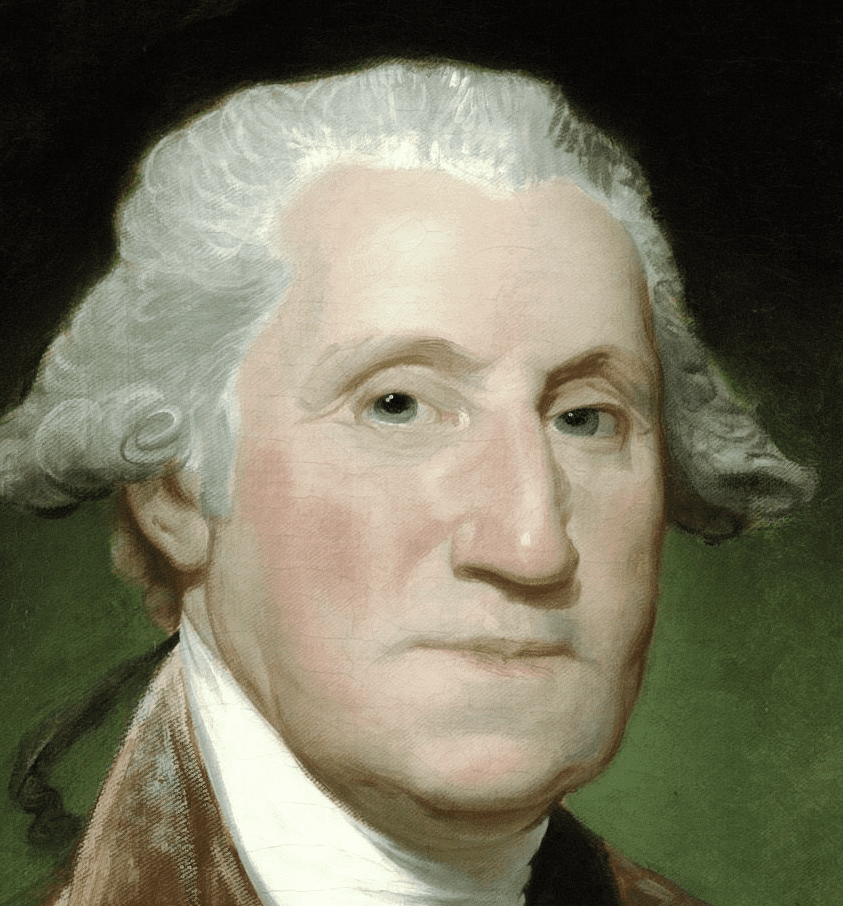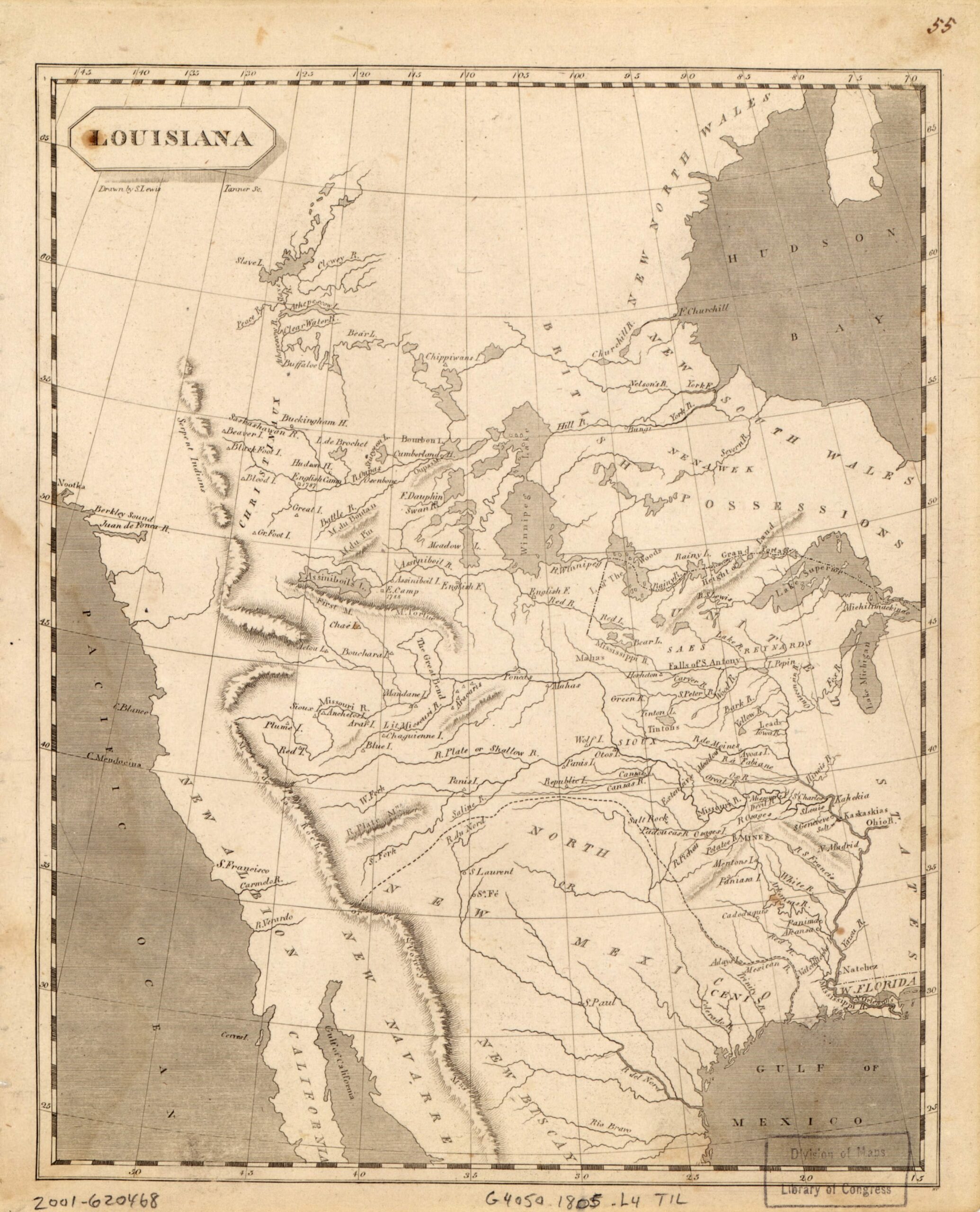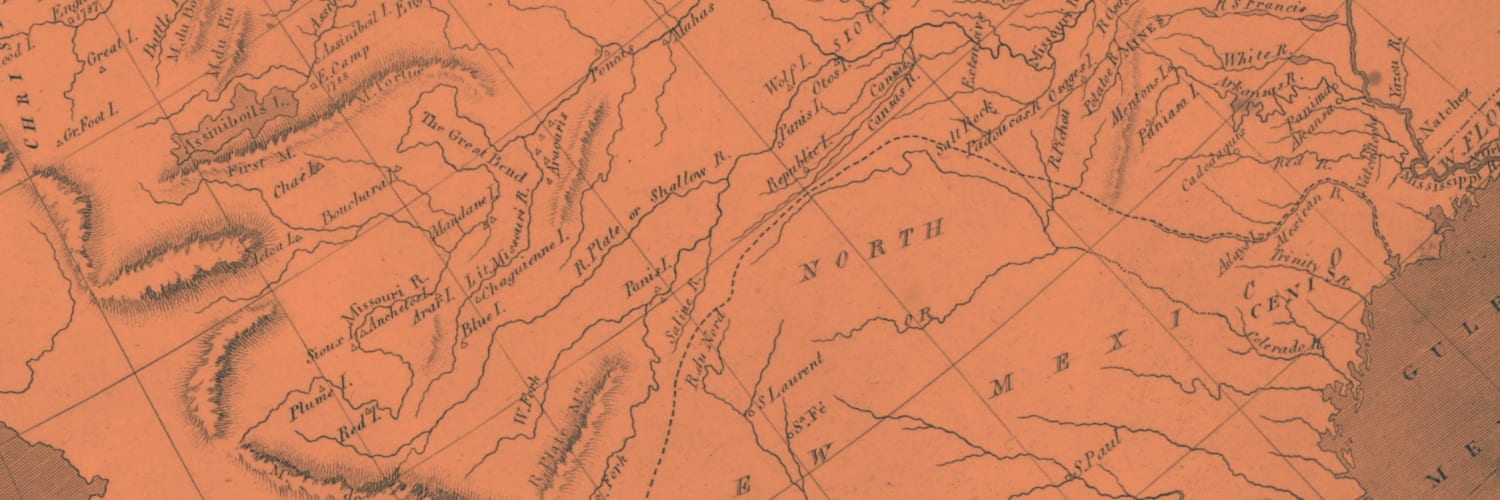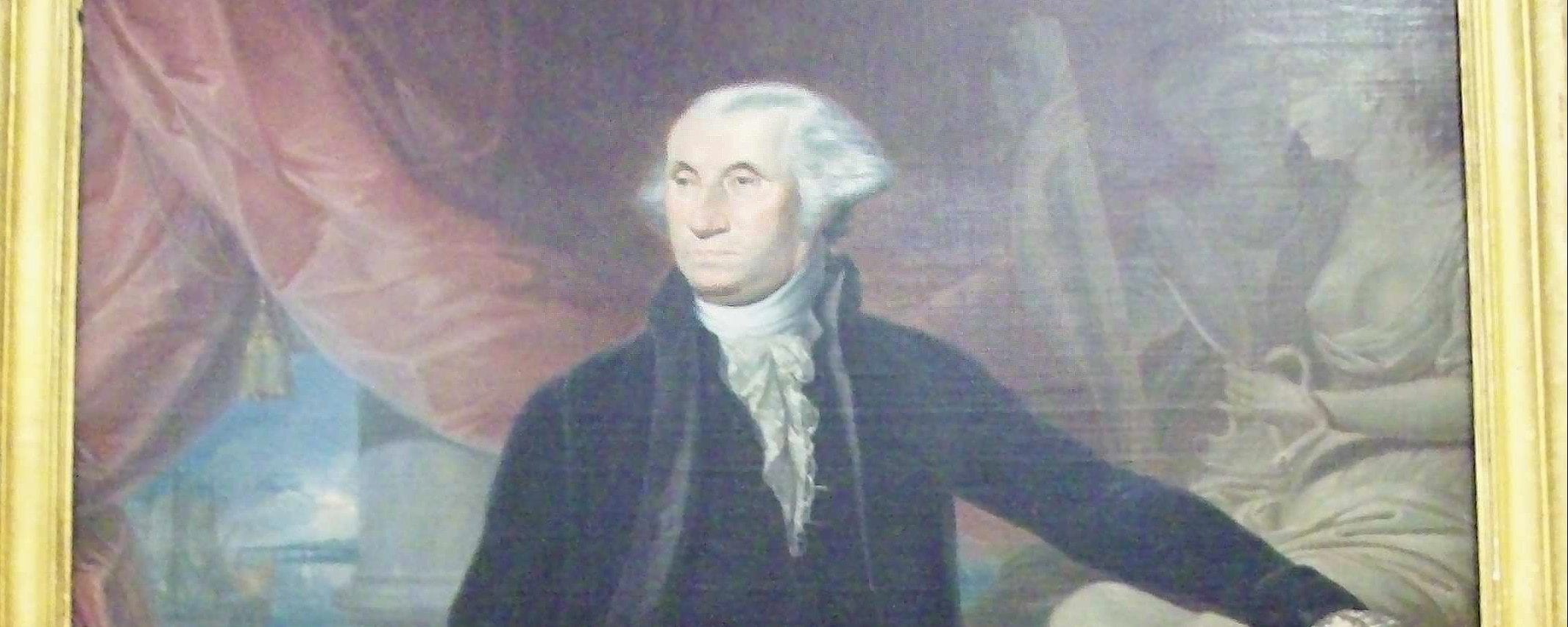

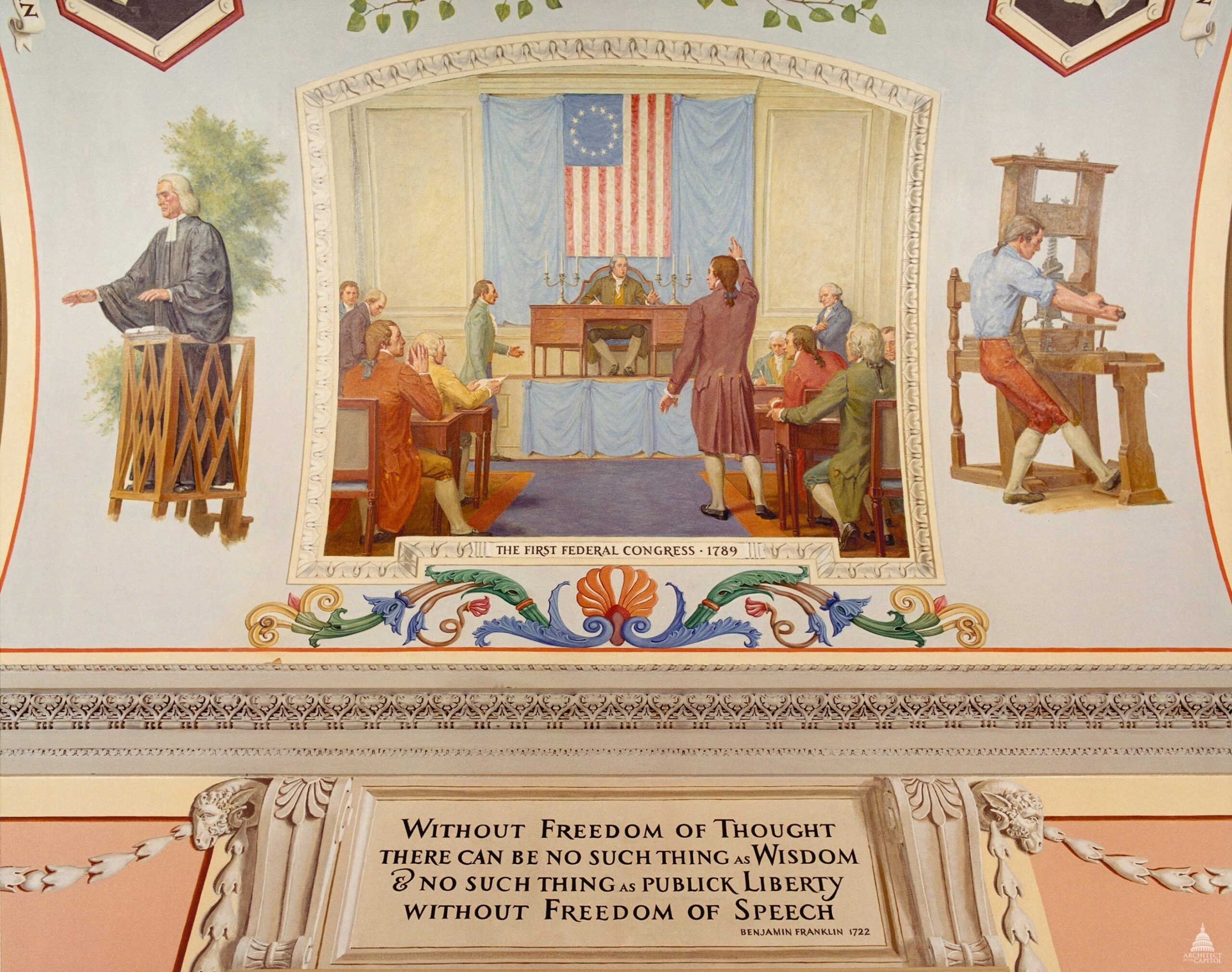
No related resources
Introduction
During the months that elapsed between his letter to Jefferson in October 1788 and the opening of the first session of the new Congress in April 1789, Madison reached the conclusion that the Constitution did indeed need amendment to guarantee citizens certain rights. On June 8, 1789, Madison persuaded the Federalist majority in the House of Representatives to take this concern seriously. Some doubted that amendments were needed, while others argued that consideration be postponed. Madison insisted that Congress pay attention to the wishes of those constituents who still held reservations about whether the federal government would respect their rights. He noted that two states (North Carolina and Rhode Island) had not yet voted to ratify the Constitution, and added that significant minorities in the states that had ratified would be reassured if amendments were enacted.
He admitted the danger that worried many of his colleagues: that by considering amendments to the Constitution at this early date, Congress might open “a door . . . for a re-consideration of the whole structure of the Government — for a re-consideration of the principles and the substance of the powers given.” Yet he insisted that no such wide-open reconsideration of the Constitution need happen. There were certain rights not yet guaranteed by the Constitution that a two-thirds majority of Congress would readily accept. “I will not propose a single alteration which I do not wish to see take place, as intrinsically proper in itself, or proper because it is wished for by a respectable number of my fellow-citizens; and therefore I shall not propose a single alteration but is likely to meet the concurrence required by the Constitution,” he assured his fellow House members.
Madison proposed nine separate amendments which, broken down, amounted to 39 particular measures to safeguard liberties he thought potentially threatened. None aimed at altering the structure or powers of the general government. Yet Madison wanted to open up the Constitution and insert these 39 specific changes where appropriate. It was very likely this mode of amending the Constitution that made fellow House members such as Roger Sherman of Connecticut and James Jackson of Georgia reluctant to move forward on Madison’s proposals. The longest and most important of Madison’s proposals, the fourth, would have added ten additional exceptions to the powers of Congress in Article I, section 9. The list in Madison’s fourth amendment contains seven of the ten amendments adopted subsequently by the state legislatures.
Having meditated at length on the rights that needed to be secured, Madison now had synthesized Jefferson’s arguments for a bill of rights with his own earlier arguments in their exchange of letters (1787-1789) on the matter. In particular, he joined Jefferson’s notion that “a bill of rights is what the people are entitled to against every government on earth” with his own concern that the greatest danger to liberty is at the state level. Accordingly, he challenged fellow House members to resolve that “no State shall violate the equal right of the conscience, freedom of the press, or trial by jury in criminal cases.” This feature was defeated when the proposals arrived at the Senate.
Source: 1 Annals of Cong. 424-450 (1789).
I will state my reasons why I think it proper to propose amendments; and state the amendments themselves, so far as I think they ought to be proposed. If I thought I could fulfill the duty which I owe to myself and my constituents, to let the subject pass over in silence, I most certainly should not trespass upon the indulgence of this House. But I cannot do this; and am therefore compelled to beg a patient hearing to what I have to lay before you. And I do most sincerely believe, that if Congress will devote but one day to this subject, so far as to satisfy the public that we do not disregard their wishes, it will have a salutary influence on the public councils, and prepare the way for a favorable reception of our future measures.
. . . And if there are amendments desired of such a nature as will not injure the Constitution, and they can be engrafted so as to give satisfaction to the doubting part of our fellow-citizens, the friends of the Federal Government will evince that spirit of deference and concession for which they have hitherto been distinguished.
It cannot be a secret to the gentlemen in this House, that, notwithstanding the ratification of this system of Government by eleven of the thirteen United States, in some cases unanimously, in others by large majorities; yet still there is a great number of our constituents who are dissatisfied with it; among whom are many respectable for their talents and patriotism, and respectable for the jealousy they have for their liberty, which, though mistaken in its object, is laudable in its motive. . . . But perhaps there is a stronger motive than this for our going into a consideration of the subject. It is to provide those securities for liberty which are required by a part of the community; I allude in a particular manner to those two States[1] who have not thought fit to throw themselves into the bosom of the Confederacy. It is a desirable thing, on our part as well as theirs, that a re-union should take place as soon as possible. I have no doubt, if we proceed to take those steps which would be prudent and requisite at this juncture, that in a short time we should see that disposition prevailing in those States that are not come in, that we have seen prevailing in those States which have embraced the Constitution.
But I will candidly acknowledge, that, over and above all these considerations, I do conceive that the Constitution may be amended; that is to say, if all power is subject to abuse, that then it is possible the abuse of the powers of the General Government may be guarded against in a more secure manner than is now done, while no one advantage arising from the exercise of that power shall be damaged or endangered by it. We have in this way something to gain, and, if we proceed with caution, nothing to lose. And in this case it is necessary to proceed with caution; for while we feel all these inducements to go into a revisal of the Constitution, we must feel for the Constitution itself, and make that revisal a moderate one. I should be unwilling to see a door opened for a re-consideration of the whole structure of the Government — for a re-consideration of the principles and the substance of the powers given; because I doubt, if such a door were opened, we should be very likely to stop at that point which would be safe to the Government itself. But I do wish to see a door opened to consider, so far as to incorporate those provisions for the security of rights, against which I believe no serious objection has been made by any class of our constituents: such as would be likely to meet with the concurrence of two-thirds of both Houses, and the approbation of three-fourths of the State Legislatures. I will not propose a single alteration which I do not wish to see take place, as intrinsically proper in itself, or proper because it is wished for by a respectable number of my fellow-citizens; and therefore I shall not propose a single alteration but is likely to meet the concurrence required by the Constitution. There have been objections of various kinds made against the Constitution. . . . I believe that the great mass of the people who opposed it, disliked it because it did not contain effectual provision against the encroachments on particular rights, and those safeguards which they have been long accustomed to have interposed between them and the magistrate who exercised the sovereign power: nor ought we to consider them safe, while a great number of our fellow-citizens think these securities necessary. . . .
The amendments which have occurred to me, proper to be recommended by Congress to the State Legislatures, are these:
[Madison’s first proposed amendment would have added to the Constitution a preface declaring several of the rights articulated in the Declaration, including the right of the people to amend their form of government. His second and third amendments dealt with the ratio of representatives in the House to the inhabitants they represented and the ability of Congressmen to fix their own salaries.]
. . . Fourthly. That in article 1st, section 9, between clauses 3 and 4, be inserted these clauses, to wit: The civil rights of none shall be abridged on account of religious belief or worship, nor shall any national religion be established, nor shall the full and equal rights of conscience be in any manner, or on any pretext, infringed.
The people shall not be deprived or abridged of their right to speak, to write, or to publish their sentiments; and the freedom of the press, as one of the great bulwarks of liberty, shall be inviolable.
The people shall not be restrained from peaceably assembling and consulting for their common good; nor from applying to the legislature by petitions, or remonstrances for redress of their grievances.
The right of the people to keep and bear arms shall not be infringed; a well armed and well regulated militia being the best security of a free country: but no person religiously scrupulous of bearing arms shall be compelled to render military service in person.
No soldier shall in time of peace be quartered in any house without the consent of the owner; nor at any time, but in a manner warranted by law.
No person shall be subject, except in cases of impeachment, to more than one punishment, or one trial for the same offence; nor shall be compelled to be a witness against himself; nor be deprived of life, liberty, or property, without due process of law; nor be obliged to relinquish his property, where it may be necessary for public use, without a just compensation.
Excessive bail shall not be required, nor excessive fines imposed, nor cruel and unusual punishments inflicted.
The rights of the people to be secured in their persons, their houses, their papers, and their other property, from all unreasonable searches and seizures, shall not be violated by warrants issued without probable cause, supported by oath or affirmation, or not particularly describing the places to be searched, or the persons or things to be seized.
In all criminal prosecutions, the accused shall enjoy the right to a speedy and public trial, to be informed of the cause and nature of the accusation, to be confronted with his accusers, and the witnesses against him; to have a compulsory process for obtaining witnesses in his favor; and to have the assistance of counsel for his defense.
The exceptions here or elsewhere in the Constitution, made in favor of particular rights, shall not be so construed as to diminish the just importance of other rights retained by the people, or as to enlarge the powers delegated by the Constitution; but either as actual limitations of such powers, or as inserted merely for greater caution.
Fifthly. That in article 1st, section 10, between clauses 1 and 2, be inserted this clause, to wit:
No State shall violate the equal rights of conscience, or the freedom of the press, or the trial by jury in criminal cases.
Sixthly. That, in article 3d, section 2, be annexed to the end of clause 2d, these words, to wit:
But no appeal to such court shall be allowed where the value in controversy shall not amount to ____ dollars: nor shall any fact triable by jury, according to the course of common law, be otherwise re-examinable than may consist with the principles of common law.
Seventhly. That in article 3d, section 2, the third clause be struck out, and in its place be inserted the clauses following, to wit:
The trial of all crimes (except in cases of impeachments, and cases arising in the land or naval forces, or the militia when on actual service, in time of war or public danger) shall be by an impartial jury of freeholders of the vicinage,[2] with the requisite of unanimity for conviction, of the right of challenge, and other accustomed requisites; and in all crimes punishable with loss of life or member, presentment or indictment by a grand jury shall be an essential preliminary, provided that in cases of crimes committed within any county which may be in possession of an enemy, or in which a general insurrection may prevail, the trial may by law be authorized in some other county of the same State, as near as may be to the seat of the offence.
In cases of crimes committed not within any county, the trial may by law be in such county as the laws shall have prescribed. In suits at common law, between man and man, the trial by jury, as one of the best securities to the rights of the people, ought to remain inviolate.
Eighthly. That immediately after article 6th, be inserted, as article 7th, the clauses following, to wit:
The powers delegated by this Constitution are appropriated to the departments to which they are respectively distributed: so that the Legislative Department shall never exercise the powers vested in the Executive or Judicial, nor the Executive exercise the powers vested in the Legislative or Judicial, nor the Judicial exercise the powers vested in the Legislative or Executive Departments.
The powers not delegated by this Constitution, nor prohibited by it to the states, are reserved to the States respectively.
Ninthly. That article 7th, be numbered as article 8th.
The first of these amendments, relates to what may be called a bill of rights. I will own that I never considered this provision so essential to the Federal Constitution as to make it improper to ratify it, until such an amendment was added; at the same time, I always conceived, that in a certain form, and to a certain extent, such a provision was neither improper nor altogether useless. I am aware that a great number of the most respectable friends to the Government, and champions for republican liberty, have thought such a provision not only unnecessary, but even improper, nay, I believe some have gone so far as to think it even dangerous. . . .
. . . The people of many States, have thought it necessary to raise barriers against power in all forms and departments of Government, and I am inclined to believe, if once bills of rights are established in all the States as well as the Federal Constitution, we shall find, that, although some of them are rather unimportant, yet, upon the whole, they will have a salutary tendency. It may be said, in some instances, they do no more than state the perfect equality of mankind. This, to be sure, is an absolute truth, yet it is not absolutely necessary to be inserted at the head of a Constitution. . . .
In our Government it is, perhaps, less necessary to guard against the abuse in the Executive Department than any other; because it is not the stronger branch of the system, but the weaker. It therefore must be leveled against the Legislative, for it is the most powerful, and most likely to be abused, because it is under the least control. Hence, so far as a declaration of rights can tend to prevent the exercise of undue power, it cannot be doubted but such declaration is proper. But I confess that I do conceive, that in a Government modified like this of the United States, the great danger lies rather in the abuse of the community than in the Legislative body. The prescriptions in favor of liberty ought to be leveled against that quarter where the greatest danger lies, namely, that which possesses the highest prerogative of power. But this is not found in either the Executive or Legislative departments of Government, but in the body of the people, operating by the majority against the minority.
It may be thought all paper barriers against the power of the community are too weak to be worthy of attention. I am sensible they are not so strong as to satisfy gentlemen of every description who have seen and examined thoroughly the texture of such a defense; yet, as they have a tendency to impress some degree of respect for them, to establish the public opinion in their favor, and rouse the attention of the whole community, it may be one means to control the majority from those acts to which they might be otherwise inclined.
It has been said, by way of objection to a bill of rights, by many respectable gentlemen out of doors, and I find opposition on the same principles likely to be made by gentlemen on this floor, that they are unnecessary articles of a Republican Government, upon the presumption that the people have those rights in their own hands, and that is the proper place for them to rest. It would be a sufficient answer to say, that this objection lies against such provisions under the State Government, as well as under the General Government; and there are, I believe, but few gentlemen who are inclined to push their theory so far as to say that a declaration of rights in those cases is either ineffectual or improper. It has been said, that in the Federal Government they are unnecessary, because the powers are enumerated, and it follows, that all that are not granted by the Constitution are retained; that the Constitution is a bill of powers, the great residuum[3] being the rights of the people; and, therefore, a bill of rights cannot be so necessary as if the residuum was thrown into the hands of the Government. I admit that these arguments are not entirely without foundation; but they are not conclusive to the extent which has been supposed. It is true, the powers of the General Government are circumscribed, they are directed to particular objects; but even if Government keeps within those limits, it has certain discretionary powers with respect to the means, which may admit of abuse to a certain extent, in the same manner as the powers of the State Governments under their constitutions may to an indefinite extent; because in the Constitution of the United States, there is a clause granting to Congress the power to make all laws which shall be necessary and proper for carrying into execution all the powers vested in the Government of the United States, or in any department or officer thereof; this enables them to fulfill every purpose for which the Government was established. Now, may not laws be considered necessary and proper by Congress, (for it is them who are to judge of the necessity and propriety to accomplish those special purposes which they may have in contemplation,) which laws in themselves are neither necessary or proper; as well as improper laws could be enacted by the State Legislatures, for fulfilling the more extended objects of those Governments? I will state an instance, which I think in point, and proves that this might be the case. The General Government has a right to pass all laws which shall be necessary to collect its revenue; the means for enforcing the collection are within the direction of the Legislature: may not general warrants be considered necessary for this purpose, as well as for some purposes which it was supposed at the framing of their constitutions the State Governments had in view? If there was reason for restraining the State Governments from exercising this power, there is like reason for restraining the Federal Government.
It may be said, indeed it has been said, that a bill of rights is not necessary, because the establishment of this Government has not repealed those declarations of rights which are added to the several State constitutions; that those rights of the people which had been established by the most solemn act, could not be annihilated by a subsequent act of that people, who meant and declared at the head of the instrument, that they ordained and established a new system, for the express purpose of securing to themselves and posterity the liberties they had gained by an arduous conflict.
I admit the force of this observation, but I do not look upon it to be conclusive. In the first place, it is too uncertain ground to leave this provision upon, if a provision is at all necessary to secure rights so important as many of those I have mentioned are conceived to be, by the public in general, as well as those in particular who opposed the adoption of this Constitution. Beside some States have no bills of rights, there are others provided with very defective ones, and there are others whose bills of rights are not only defective, but absolutely improper; instead of securing some in the full extent which republican principles would require, they limit them too much to agree with the common ideas of liberty.[4]
It has been objected also against a bill of rights, that, by enumerating particular exceptions to the grant of power, it would disparage those rights which were not placed in that enumeration; and it might follow by implication, that those rights which were not singled out, were intended to be assigned into the hands of the General Government, and were consequently insecure. This is one of the most plausible arguments I have ever heard urged against the admission of a bill of rights into this system; but, I conceive, that may be guarded against. I have attempted it, as gentlemen may see by turning to the last clause of the fourth resolution.
It has been said that it is unnecessary to load the Constitution with this provision, because it was not found effectual in the constitution of the particular States. It is true, there are a few particular States in which some of the most valuable articles have not, at one time or other, been violated; but does it not follow but they may have, to a certain degree, a salutary effect against the abuse of power. If they are incorporated into the Constitution, independent tribunals of justice will consider themselves in a peculiar manner the guardians of those rights; they will be an impenetrable bulwark against every assumption of power in the Legislative or Executive; they will be naturally led to resist every encroachment upon rights expressly stipulated for in the Constitution by the declaration of rights. Besides this security, there is a great probability that such a declaration in the federal system would be enforced; because the State Legislatures will jealously and closely watch the operations of this Government, and be able to resist with more effect every assumption of power, than any other power on earth can do; and the greatest opponents to a Federal Government admit the State Legislatures to be sure guardians of the people’s liberty. I conclude, from this view of the subject, that it will be proper in itself, and highly politic, for the tranquility of the public mind, and the stability of the Government, that we should offer something, in the form I have proposed, to be incorporated in the system of Government, as a declaration of the rights of the people. . . .
I wish, also, in revising the Constitution, we may throw into that section, which interdicts the abuse of certain powers in the State Legislatures, some other provisions of equal if not greater importance than those already made. The words, “No state shall pass any bill of attainder, ex post facto law,” &c., were wise and proper restrictions in the Constitution. I think there is more danger of those powers being abused by the State Governments than by the Government of the United States. The same may be said of other powers which they possess, if not controlled by the general principle, that laws are unconstitutional which infringe the rights of the community. I should, therefore, wish to extend this interdiction, and add, as I have stated in the 5th resolution, that no State shall violate the equal right of conscience, freedom of the press, or trial by jury in criminal cases; because it is proper that every Government should be disarmed of powers which trench upon those particular rights. I know, in some of the State constitutions, the power of the Government is controlled by such a declaration; but [in] others [it is] not. I cannot see any reason against obtaining even a double security on those points; and nothing can give a more sincere proof of the attachment of those who opposed this Constitution to these great and important rights, than to see them join in obtaining the security I have now proposed; because it must be admitted, on all hands, that the State Governments are as liable to attack these invaluable privileges as the General Government is, and therefore ought to be as cautiously guarded against. . . .
I find, from looking into the amendments proposed by the State conventions, that several are particularly anxious that it should be declared in the Constitution, that the powers not therein delegated, should be reserved to the several States. Perhaps words which may define this more precisely than the whole of the instrument now does, may be considered as superfluous. I admit they may be deemed unnecessary; but there can be no harm in making such a declaration, if gentlemen will allow that the fact is as stated. I am sure I understand it so, and do therefore propose it.
These are the points on which I wish to see a revision of the Constitution take place. How far they will accord with the sense of this body, I cannot take upon me absolutely to determine; but I believe every gentleman will readily admit that nothing is in contemplation, so far as I have mentioned, that can endanger the beauty of the Government in any one important feature, even in the eyes of its most sanguine admirers. I have proposed nothing that does not appear to me as proper in itself, or eligible as patronized by a respectable number of our fellow-citizens; and if we can make the Constitution better in the opinion of those who are opposed to it, without weakening its frame, or abridging its usefulness in the judgment of those who are attached to it, we act the part of wise and liberal men to make such alterations as shall produce that effect.
Having done what I conceived was my duty, in bringing before this House the subject of amendments, and also stated such as I wish for and approve, and offered the reasons which occurred to me in their support, I shall content myself, for the present, with moving “that a committee be appointed to consider of and report such amendments as ought to be proposed by Congress to the Legislatures of the States, to become, if ratified by three fourths thereof, part of the Constitution of the United States.” By agreeing to this motion, the subject may be going on in the committee, while other important business is proceeding to a conclusion in the House. I should advocate greater dispatch in the business of amendments, if I was not convinced of the absolute necessity there is of pursuing the organization of the Government; because I think we should obtain the confidence of our fellow-citizens, in proportion as we fortify the rights of the people against the encroachments of the Government.
[James Jackson of Georgia, Elbridge Gerry of Massachusetts, Samuel Livermore of New Hampshire, Roger Sherman of Connecticut, Thomas Sumter of South Carolina, and John Vining of Delaware debated the merits of sending Madison’s proposals to a select committee.]
Mr. MADISON found himself unfortunate in not satisfying gentlemen with respect to the mode of introducing the business; he thought, from the dignity and the peculiarity of the subject, that it ought to be referred to a Committee of the Whole. He accordingly made that motion first, but finding himself not likely to succeed in that way, he had changed his ground. Fearing again to be discomfited, he would change his mode, and move the propositions he had stated before, and the House might do what they thought proper with them. He accordingly moved the propositions by way of resolutions to be adopted by the House.
[After a brief discussion,] “Mr. MADISON’S propositions were ordered to be referred to a Committee of the Whole on the State of the Union.”
- 1. North Carolina declined to ratify the Constitution at the state’s initial ratification convention. After learning that Congress had endorsed the proposal for a Bill of Rights, it called a second convention, and ratified on November 21, 1789. Rhode Island refused to call a ratifying convention until the end of the first session of Congress. It finally ratified in a close vote on May 29, 1790.
- 2. area near about (where the crime took place)
- 3. thing that is left behind
- 4. See Madison’s letter to Jefferson, in which he writes, “I am sure that the rights of conscience in particular, if submitted to the public definition[,] would be narrowed much more than they are likely ever to be by an assumed power. One of the objections in New England was that the Constitution by prohibiting religious tests opened a door for Jews, Turks and infidels.”
Remarks on the Removal Power
June 21, 1789
Conversation-based seminars for collegial PD, one-day and multi-day seminars, graduate credit seminars (MA degree), online and in-person.

